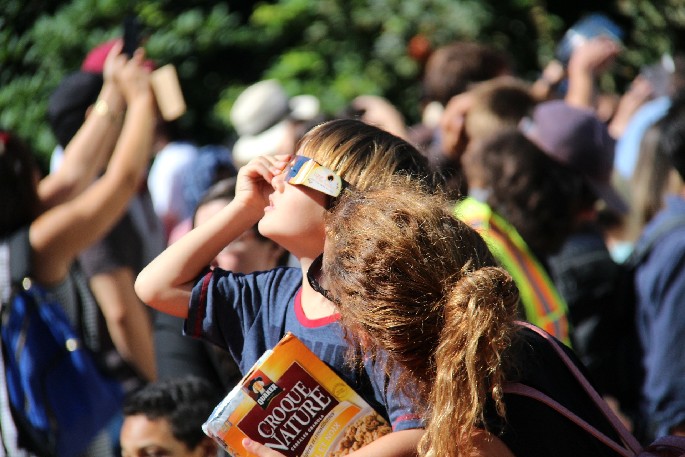This Content Is Only For Subscribers
The recent North American solar eclipse April 8, 2024, brought about a celestial spectacle that mesmerized America, Mexico and Canada. But beyond the astronomical wonder, the event also triggered a tourism boom, with hotels and short-term rentals in prime viewing locations booked solid for months in advance.
In states like Texas, Arkansas, Ohio, and Maine, anticipation for the eclipse reached fever pitch as enthusiasts scrambled to secure accommodations with optimal views. Even in the face of overcast conditions, eclipse watchers converged at places like Stonehenge II park in Ingram, Texas—a replica of the iconic monument in England—determined in their quest to witness the rare phenomenon.
In flight, Delta Airlines recognised the significance of the event, organising two special flights along the path of the eclipse, catering to those eager to experience the event from above. Meanwhile, in the Niagara region, authorities declared a state of emergency out of an abundance of caution ahead of the eclipse’s arrival. With Niagara Falls positioned along the eclipse’s path, tourists flocked to the area, splurging on hotels and rentals to catch a glimpse of the spectacle against the backdrop of one of North America’s natural wonders.
But the phenomena of the eclipse extended far beyond North America and in New Zealand, anticipation is building for the country’s first total solar eclipse in decades, set to occur, July 22, 2028. The last such event took place in 1965, visible only in a small part of Northland. Now, with the upcoming eclipse poised to be a major tourism drawcard
Greg Thomas, general manager of Membership and Advocacy at TIA (Tourism Industry Aotearoa) says the growing interest in stargazing as a tourism activity sets the stage for the next eclipse to be a significant drawcard for the country seeing as it is emerging as a go-to destination for celestial events.
“Stargazing is already growing as a tourism activity, and some of our members specialize in this area,” says Thomas. “So there’s no reason why the next eclipse would not be a drawcard, especially given our dark sky reserves.” he says.
In Dunedin, there are plans to hold a ‘Festival of Astronomy’ for the 2028 solar eclipse which is due to coincide with Matariki. The solar eclipse will once again be a big global event and is set to track across Sydney, and other remote parts of Australia.



